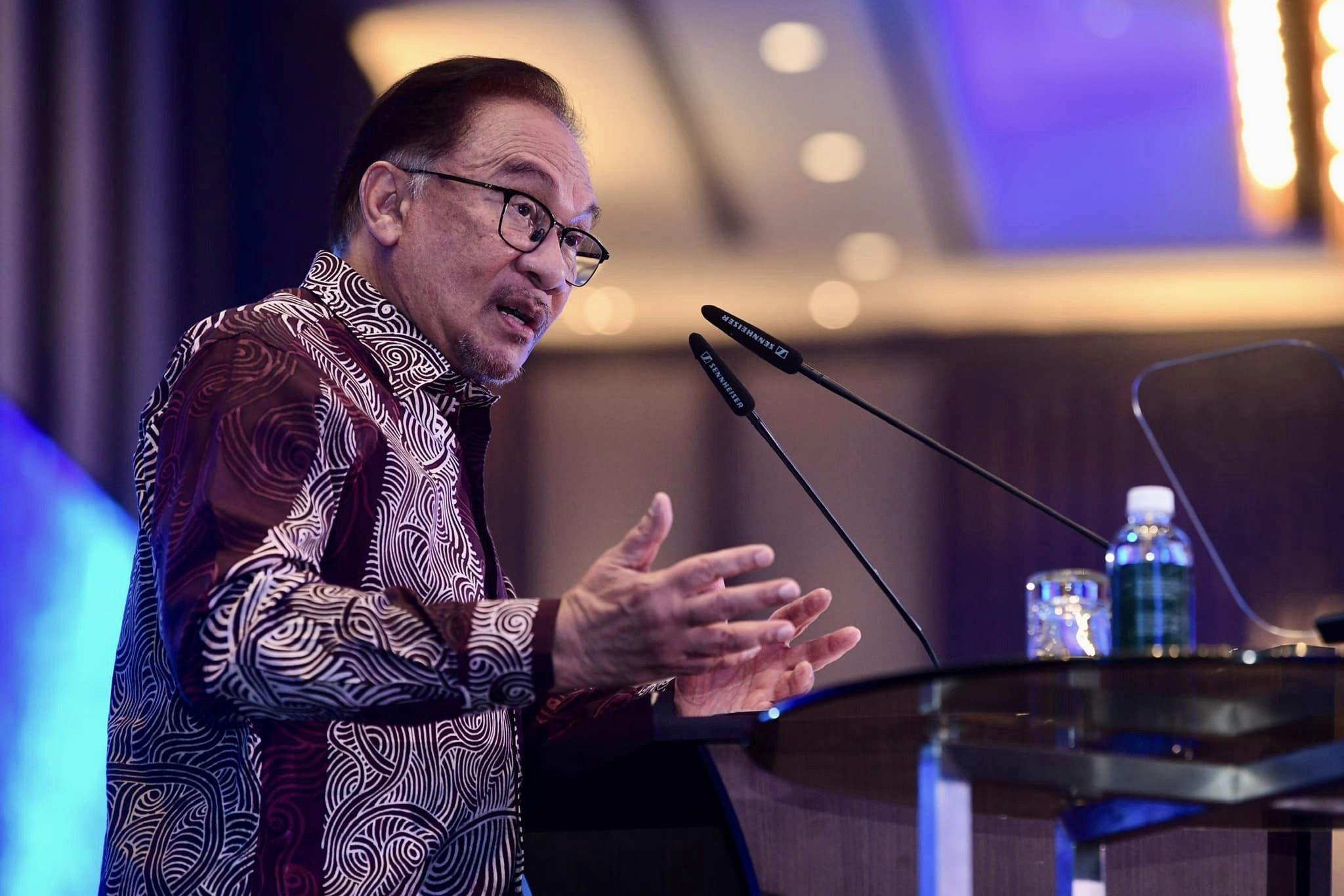
Anwar Ibrahim would not be the first political dissident who has struggled with the transition from opposition to incumbency. In office, his grasp of complex policy issues, such as the South China Sea, has sometimes lacked depth, while his rhetoric often appears overblown.
Since he became prime minister, in November 2022, Anwar has recast Malaysia’s non-aligned, hedged foreign policy with his repeated embrace of neutrality as his preferred setting for Malaysia, his reluctance to say anything but positive things about China and his visceral reactions to the Israel–Hamas conflict.
This matters to Australia because Malaysia is one of its longest-standing traditional security partners in Southeast Asia and facilitates Australian Defence Force access into the sub-region. Anwar’s apparent anti-Western and pro-China leanings will very probably make Malaysia harder to work with while he is in office. The country may be unreliable if there is a major regional security crisis involving China.
So far, Anwar has not changed Malaysia’s official defence and security settings. And members of Malaysia’s armed forces generally prize their inter-personal and training ties with Western counterparts, including Australia.
Also, outsiders had qualms about some of Malaysia’s foreign policy proclivities under Anwar’s predecessors. During former prime minister Mahathir Mohamad’s long tenure (1981 to 2003, and 2018 to 2020), Malaysia often supported pan-Asianist and pan-Islamic initiatives and sentiments, while also sharply criticising the policies of Western governments. Still, Kuala Lumpur maintained close, if low-profile military links to the United States while also husbanding its residual Commonwealth security ties, including its position in the Five Power Defence Arrangements (FPDA) with Australia, New Zealand, Singapore and Britain.
There is a further domestic political context to some of Anwar’s foreign policy positioning. Nevertheless, doubts about Malaysia’s trajectory have notably risen under his leadership.
One obvious change factor is that the war in the Middle East has galvanised Anwar’s heartfelt attachment to the Palestinian cause, leading him to lionise leaders of Hamas as ‘freedom fighters’ and to mourn its political leader, Ismail Haniyeh, as a ‘dear friend’ after his assassination by Israel. This intemperate tone, and Anwar’s vitriolic outbursts against US support for Israel, will make it difficult for him to move closer to Washington for the remainder of his time in office, regardless of who wins the US presidential election in November.
Another hallmark of Malaysia’s foreign policy under Anwar has been the prevalence of pro-China sentiments voiced by him and his cabinet, including on Taiwan and the South China Sea. Beijing’s openly aggressive treatment of the Philippines and the near-permanent Chinese physical presence in Malaysia’s exclusive economic zone are overlooked.
On 19 June, during a visit of Chinese Premier Li Qiang to Malaysia, a joint statement by the two countries said, ‘Malaysia recognizes that Taiwan is an inalienable territory of the People’s Republic of China, in order for China to achieve national reunification and thus will not support any call for the independence of Taiwan.’ This unambiguous siding with Beijing prompted a protest by Taipei’s foreign ministry.
Anwar said in June that Malaysia had applied through Russia (in its current capacity as chair) to join the BRICS grouping, another signal of Kuala Lumpur’s willingness to align with China and Russia on the international stage. China’s state media has unsurprisingly welcomed the application. BRICS has notably failed to attract prominent new members, such as Argentina or Indonesia, and is now widely seen as a moribund forum, which even India, a founder member, has downgraded in its foreign policy.
Malaysian Foreign Minister Mohamad Hasan’s statement at the July ASEAN meeting of foreign ministers in Laos was a concerning precursor to what might be coming next year as Kuala Lumpur takes the reins as ASEAN’s rotating chair. In what was widely seen as a rebuke of the Philippines’ diplomatic efforts to enlist international support for its stand against China’s encroachment in the South China Sea, Hasan said, ‘If any ASEAN member … attempts to bring in external influence to solve its problems, it will lead to uncertainty in the Southeast Asian region.’
Malaysia’s desire to exclude other countries, such as Australia, Japan and the United States, from South China Sea disputes aligns with China’s preferences. It also helps China’s behind-the-scenes efforts to influence negotiations with ASEAN on a code of conduct for the South China Sea. It is particularly concerning that Anwar’s foreign minister explicitly equated the exclusion of countries apart from ASEAN members and China with the concept of ASEAN centrality.
Malaysia’s foreign policy tilt under Anwar naturally raises questions about its long-term value as a bilateral and multilateral security partner to Australia. Along with other ambivalent signals from ASEAN capitals, it should prompt an honest reappraisal of the Australian government’s determination to accord Southeast Asia a general priority within foreign policy. The Philippines and Vietnam aside, it’s not clear that beyond the ritual airing of ASEAN-centric bromides there is a collective vision or prize on offer to justify the ongoing level of diplomatic investment.